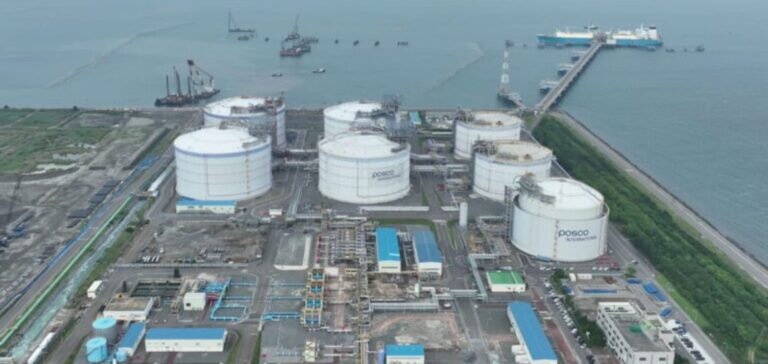South Korean importers, notably Korea Gas Corporation (Kogas) and POSCO International, have recently signed liquefied natural gas (LNG) contracts for the period 2025-2027.
These strategically-negotiated contracts include substantial discounts on the JKM (Japan-Korea Marker) index, translating into reductions of between 20 and 50 cents per million British Thermal Units (MMBtu).
This move comes at a time when buyers are seeking to protect themselves against fluctuations in the prices of Brent and Henry Hub, two other benchmarks on the global LNG market.
Greater flexibility for competitive prices
Kogas was able to exploit a flexible approach to negotiations, resulting in more attractive offers.
Sellers were encouraged to offer discounts through extended delivery terms, including a wider choice of discharge ports, extended delivery windows, and relaxed quality specifications.
This flexibility, though complex to manage, enabled Kogas to secure lower prices than those generally observed on the market.
POSCO International launched a tender in July 2024 for cargoes to be delivered between September 2025 and August 2026.
The discounts obtained, although slightly lower than those of Kogas, reflect a similar desire to benefit from the most advantageous pricing conditions for short-term contracts.
The specific nature of South Korea’s infrastructure, in particular the constraints associated with the Gwangyang terminal, also influenced the negotiations.
Anticipating and managing risks
South Korean importers’ purchasing strategies are now focused on optimizing short-term contracts, while anticipating a significant increase in global LNG supply from 2027 onwards.
The preference given to the JKM index for contracts from 2025-2027 secures more stable pricing conditions, in a market where volatility risks remain high.
With forecasts indicating the arrival of almost 200 million additional tonnes of LNG by 2030, South Korean buyers are striving to adapt their strategies to maximize their competitiveness.
Cost management, in particular through appropriate pricing mechanisms and rigorous negotiations, is an essential lever in this transition phase.






















